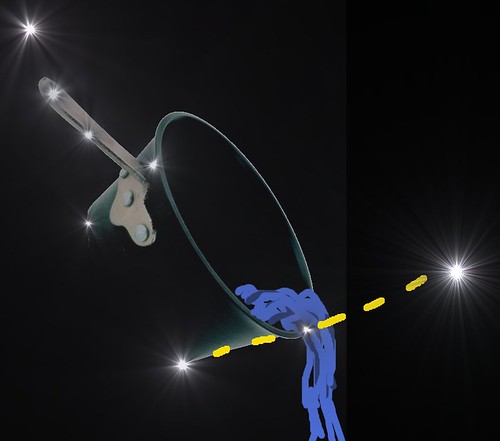Advocates call for ‘ironclad commitment’ no NDIS participant will lose support before new services in place
ndis #ndis

Disability advocates have urged federal and state governments for an “ironclad commitment” that no one will be phased out of the National Disability Insurance Scheme and on to new proposed support services before they are properly in place.
The calls come in response to a landmark review into the NDIS, released on Thursday, that found that the scheme supporting 600,000 Australians needs urgent fixes to ensure its ongoing financial sustainability.
The review’s primary findings centred around returning the scheme to its original intended purpose in focusing “first and foremost” on providing support to those with complex needs.
Under the plan, the NDIS’s individualised funding packages would be part of a spectrum of accessibility and inclusion measures that also include so-called “foundational supports” and mainstream services.
The review proposes that some people would move off the NDIS and instead receive foundational supports, which could include shopping and cleaning support, mobility aids and equipment and developmental support services for children.
The NDIS minister, Bill Shorten, said on Thursday that this would not happen overnight and any reforms adopted by the Albanese government, expected to happen next year, would be developed in conjunction with people with disability.
At Wednesday’s national cabinet meeting, Anthony Albanese struck a $10.5bn deal with the states and territories to split the cost of building those foundational and mainstream disability supports outside the NDIS in return for a further three years of GST funding.
Nicole Lee, president of People with Disability Australia, said the commitment to fund foundational supports was welcome.
“We know what it was like to live without the NDIS, we do not want to go back to those days … We feel that intrinsically and viscerally,” Lee said.
“These supports have to be in place before anybody can be offered them. We know that supports did not exist … well before the NDIS; they certainly do not exist now.”
Skye Kakoschke-Moore, the chief executive of Children and Young People with Disability Australia, said the changes recommended in the review had “the potential to transform what it means to be a child or a young person living with disabilities in Australia”, particularly with additional support for families to navigate the NDIS.
Kakoschke-Moore called on the federal and state governments to give an “ironclad commitment that no child or young person would be left worse off as a result of these reforms” and that the new supports were in place before people lost NDIS support.
“We wouldn’t want to see anybody denied access to the scheme or have that access to the scheme removed unless and until those foundational supports are in place,” she said.
Lee cautioned that the five-year timeline for reform was likely “ambitious”.
“We’ve got to develop the services, we’ve got to get them working on the ground,” she said. “It’s probably going to take a little bit more than five years.”
Damian Griffis from First Peoples Disability Network said the review’s strong emphasis on a wider support ecosystem was welcome.
skip past newsletter promotion
Sign up to Afternoon Update
Our Australian afternoon update breaks down the key stories of the day, telling you what’s happening and why it matters
Privacy Notice: Newsletters may contain info about charities, online ads, and content funded by outside parties. For more information see our Privacy Policy. We use Google reCaptcha to protect our website and the Google Privacy Policy and Terms of Service apply.
after newsletter promotion
“We really welcome the recommendation of a dedicated First Nations schedule, forum and better accountability across all governments to Closing the Gap. FPDN have been asking for this for a very long time – through stronger accountability we can make sure that all the recommendations are designed and implemented properly for our mob,” Griffis said.
The review also recommended a new tiered registration system for NDIS service providers based on a risk-assessment model. The current system allows most NDIS providers to opt-out of registration, which means there is limited regulatory oversight of their activities.
The market of unregistered providers has also ballooned unexpectedly since the NDIS’s establishment. “This leaves participants potentially exposed to risk – particularly those who have complex needs or circumstances,” the review said.
Catherine McAlpine, of Inclusion Australia, which represents people with intellectual disability, said it made sense that the agency that runs the NDIS “should know who the providers are”.
Those who supported people with higher needs should face “more rigorous registration requirements”, she added.
The review found that under the current price-cap model providers had an incentive to increase quantity of services rather than quality. The reviewers recommended a new pricing schedule, including that providers “should be paid in different ways to reflect the differences in the types of supports provided”.
In his address at the National Press Club on Thursday, Shorten said he wanted to “eliminate the ticket clipping in-between the scheme and the person”.
“The aim of the scheme is not to see double-digit, 20, 30, 40% returns to particular businesses,” Shorten said. “It’s not the job of the government to create NDIS millionaires; it’s to look after the people on the scheme.
“And in a beauty parade, I’m picking the person in the wheelchair, not the multimillionaire business provider who might be making double-digit returns.”
Laurie Leigh, the chief executive of National Disability Services, the peak body for non-government NDIS providers, welcomed the review’s recommendations around an independent pricing mechanism but urged expediency in addressing the issue.
“If this is at all delayed, the sector is at risk of market failure and many providers won’t survive,” Leigh said.